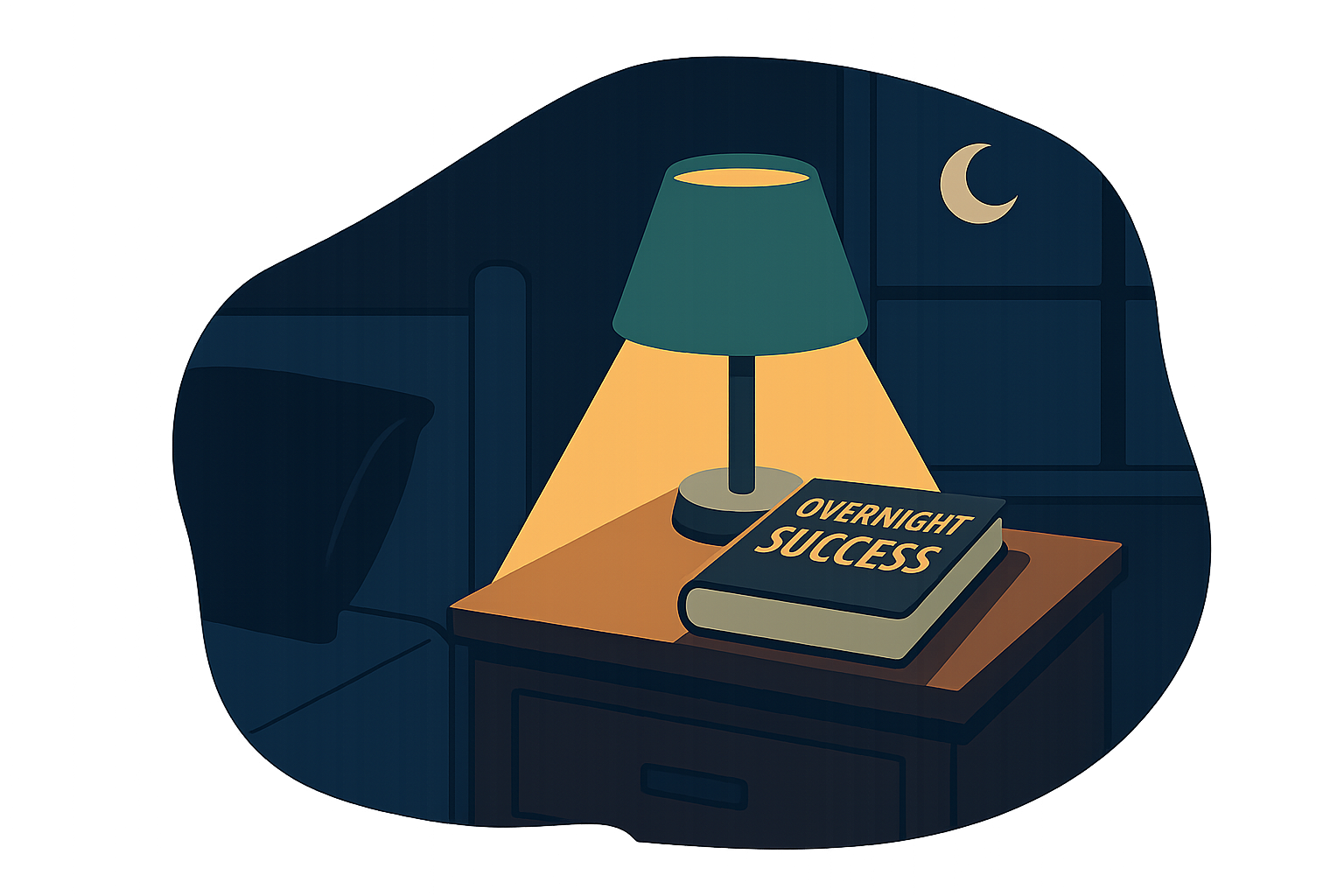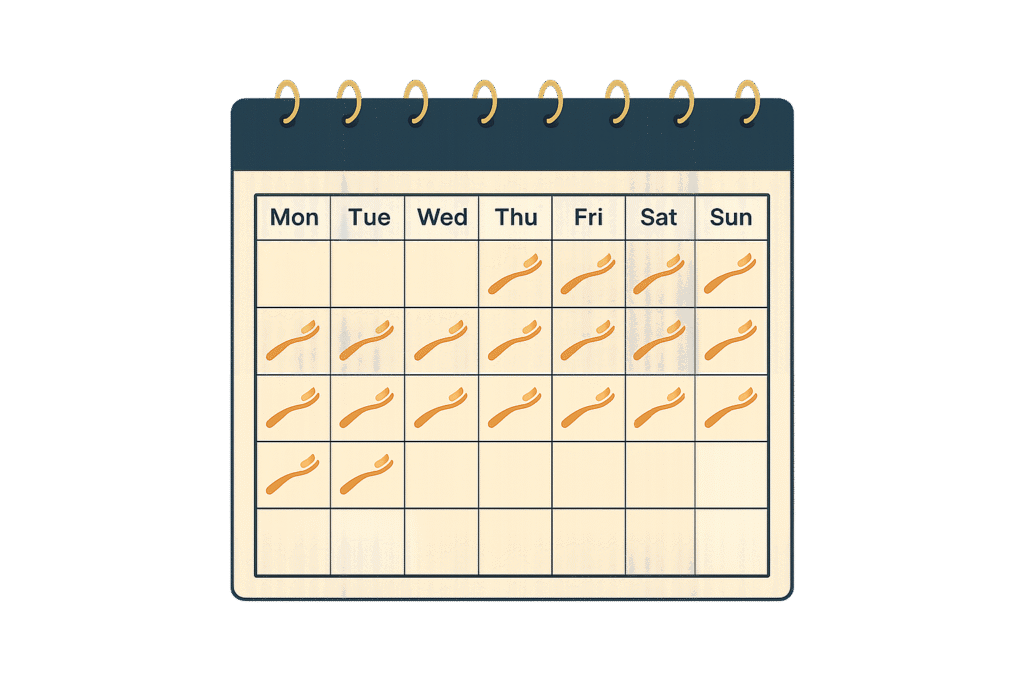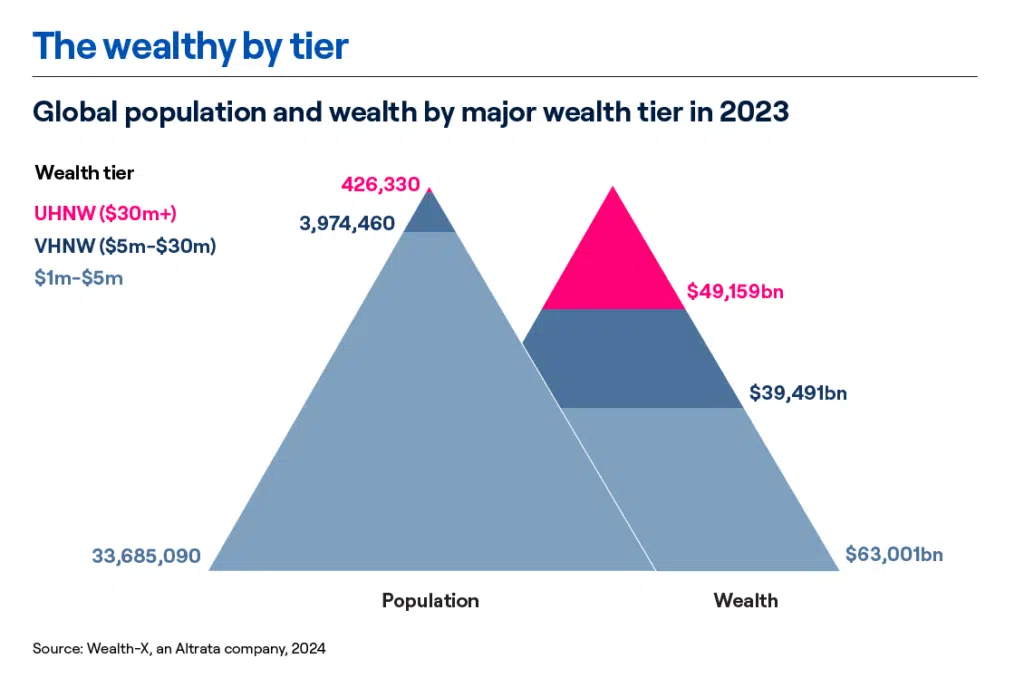Ever tried to “change your life” in a weekend? You mapped out your dream business, wrote ten pages of your book, maybe even cleaned the entire house. Then Monday hit. And by Thursday, it was like none of it ever happened. We get it. The all-in burst feels powerful. Sometimes it works. But more often, it masks the truth: intensity is exciting, but rarely enough on its own. The real driver of progress is consistency and simple habits, except in the rare cases where a sprint is exactly what’s needed.
When the Sprint Makes Sense
Sometimes, the smartest move is to go all in and just get it done. If the task is short, infrequent, and self-contained, pushing hard for a brief period makes perfect sense.

Think about yearly taxes, deep-cleaning your garage, or submitting a last-minute job application. These are irregular one-off tasks. So screw it, block out a weekend, pound coffee, ignore life, and do what needs to be done. No point in building habits if completing the task takes less time than forming the habit would. These are sprints, not marathons. They don’t justify a system.
But swap that one‑time obligation for a goal with real breadth like launching a business, leveling up your career, or running your first marathon, and the math flips. A three‑day binge won’t build the muscle memory, feedback loops, or psychological endurance needed for success. In other words, if the required work is a part of a bigger ambition or goal, consistency beats intensity because steady progress compounds.
Why Overnight Success Is a Bedtime Story for Adults
On social media, it looks instant. The app blows up. The creator goes viral. The business “scales overnight”. But most so-called overnight wins are just a tiny sliver of the timeline. A flashy highlight that hides the years of quiet effort underneath.
Take the AI boom, for example. It’s easy to assume someone just happened to be at the right place at the right time. But what if they also had the right background? Right network? Right habits to repeatedly log in hours before the spotlight ever hit?
What you don’t see: the late-night code pushes, the blog posts nobody read, the sales calls that led nowhere. You don’t see the founder refining the pitch 93 times. Or the creator making videos for two years with consistency before anything stuck.

Does this mean you can’t get lucky and land a huge win? Of course not. It can be as simple as buying $1,000 of Dogecoin when it traded at about $0.003 in early December 2020, then selling precisely on May 7 when it peaked at $0.74. Just a casual ≈23,000 % return in under 6 months. That’s it. All you had to do was:
- Identify the one memecoin out of thousands of tradable assets,
- Nail both the entry and exit within hundreds of thousands of price minutes,
- And ignore every shred of rational financial advice as you held through 800% volatility swings.
You see the point, right? Yes, flukes happen. But unless you’ve got seven lives like a cartoon cat and can afford to burn a few chasing lottery odds, you probably want a more strategic approach to your life than gambling on miracles.
The old fable still holds. The hare wins the first hundred yards. The tortoise wins the race because it never stops. A strategy of consistency and habits produces reliable progress. And if the tortoise sounds a bit too slow, fair enough. This probably isn’t for you. Most people wouldn’t actually want what it takes to reach ambitious goals. And honestly? That’s fine.
But if you’re one of the few who sees the price, understands the grind, and still chooses it, welcome to the club.
Why Businesses Really Fail
80% of businesses fail within the first five years — Michael E. Gerber
Most businesses don’t fail because they’re impossible to succeed at. They fail because the founder can’t or won’t keep doing the boring stuff. The stuff that isn’t exciting, that doesn’t bring quick wins, and that no one claps for. It’s not that they’re not capable. It’s that they don’t stick with it long enough to see it through.
Michael E. Gerber’s classic The E‑Myth Revisited highlights the numbers: 80% of businesses fail within the first five years of operation. Of the ones that survive, another 80% fail by year ten. That leaves just 4% still standing after a decade.
CB Insights analyzed over 500 startup post-mortems. Some of the top reasons? No market need, not the right team, poor product. These are familiar. But it’s worth asking: how many of these reasons might really be symptoms of something else? Something quieter, like inconsistent effort or giving up on the compounding progress too soon?
- No market need (35%). Did they keep testing, refining, and adapting relentlessly, or stop after a few rejections?
- Not the right team (14%). Did they actively build the team, give feedback, or just hope for better chemistry?
- Poor product (8%). Did they learn from real users and iterate ruthlessly, or assume people “just didn’t get it”?
Of course, we don’t know the full story behind each failure. But zoom out far enough, and a pattern starts to emerge: many failures aren’t dramatic implosions. They’re slow fades. The quiet erosion of effort when the initial motivation wears off and consistency never took its place.

Toothbrush Economics: Tiny Actions, Big Compound Interest
You (hopefully) spend about five minutes a day brushing your teeth. Doesn’t sound like much. But that’s over 30 hours per year, and more than 300 hours for every 10 years of your life.
- Are you 20? That’s already 600 hours.
- 30? 900 hours.
- 40? 1,200 hours.
Now imagine you built a habit just as automatic and just as mindless. But aimed at something else. What if those same micro‑chunks went into deliberate practice instead: writing one paragraph, learning three foreign-language words, prospecting a new client?
What if you pushed just a little further? Say, 20 minutes a day. Still sounds manageable. But now, you’re banking real time. It doesn’t feel monumental in the moment. But stretch that over a decade and what you’ve built starts to look a lot like mastery.
Daily toothbrushing never goes viral, yet it saves your smile.
Learn to brush your teeth. Or build other habits.
Redefining “Big Enough” Wins
Sure, is it likely that with just consistency, you’ll become the next Mark Zuckerberg or Steve Jobs? Probably not. The very top of the pyramid always involves more than just effort: timing, networks, sometimes privilege, and yes, a degree of luck. You can do almost everything right and still miss the perfect storm that makes someone world-famous.
That’s part of why we love the luck narrative. It keeps us safe. It’s easier to believe someone caught a lucky break than to admit they might’ve just done more. When we call it a fluke, we avoid asking the harder question: “What if I had kept showing up like they did?”
Because do you actually need to be that lucky to have an extraordinary life?
Here’s a different lens. According to Altrata’s World Ultra Wealth Report, over 426,000 people globally held ultra-high-net-worth (UHNW) status in 2023—defined as having a net worth of $30 million or more.

So ask yourself: is it necessary to crack the top ten on the Forbes list? Or would you be perfectly happy with a life that puts you in that $30 million tier? Because if that’s your goal, the bar shifts drastically. It’s no longer about building the next Facebook.
Most people who reach that ultra-wealthy level don’t do it with one brilliant move. They get there by persistence, compounding effort, and keeping momentum through setbacks.
The Boring Path to Extraordinary
Inspiration gets you started. But it’s not enough to keep you going. People who start strong often crash strong. To stay in the game, you need structure. Systems. A pace that won’t leave you burnt out and bitter two weeks in.
That’s why, at AccountaPartner, we deliberately start slow. We’re not here to impress you in week one. We’re here to keep you on track in week fifty. We lower expectations, limit early buy-in, and build from a realistic baseline, one habit at a time. It can feel underwhelming at first. But we want your momentum to be sustainable. Because nothing’s more painful than watching an excited person fizzle out before they’ve even started.
So even when it’s unpopular and you’re eager to sprint, we’ll help you slow down. Not to hold you back, but to make sure your new commitments actually stick.
Brushing your teeth every day is not sexy either. But it works.
So whether you go solo or get a partner, keep brushing.
Even when it’s boring.
Especially when it’s boring.



